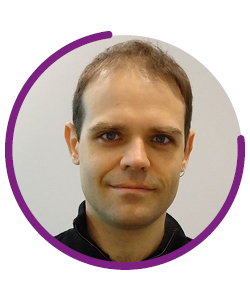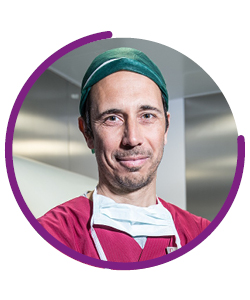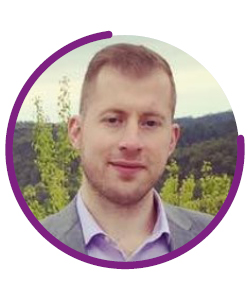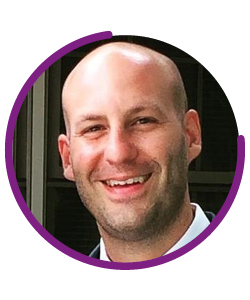
Join us for an exciting line-up of speakers at ESHRE 2017 – 3rd July
Throughout the show, we have scheduled live talks from key opinion leaders, who are experts in their respective fields of IVF and genomics. You will have the opportunity to discover new insights, ask the speakers questions and involve yourself in current discussions.
| Time | Talk Title | Speaker |
|---|---|---|
| 09:45-10:00 | Evolution of PGS | Dr Dagan Wells, Associate Professor Nuffield Dept of Obstetrics & Gynecology |
| 13:00-13:15 | Universal Warming Protocol for Human Reproductive Cells | Dr Lodovico Parmegiani Lab Director, GynePro Medical Center |
| 13:15-13:30 | Differences in chromosome abnormalities between centers | Dr Santiago Munné, Chief Scientific Officer, CooperGenomicsSM |
| 13:30-13:45 | Mosaicism: It is better to know | Dr Michael Large Director of Genomic Labs, CooperGenomics |
| 16:30-16:45 | Advancements in NIPT: Current Status & Future Directions | Dr Josh Blazek Director of Engineering, CooperGenomics |
If you would like to ask the speakers questions, there will be five-minute roving mike session at the end of each talk.
Find us on our speaker stand A16
Speaker Biographies

Speaker: Dr Dagan Wells, Associate Professor, Nuffield Dept of Obstetrics & Gynecology
Talk Title: Evolution of Pre-implantation Genetic Screening (PGS)
Date/Time: Monday 3rd July at 09:45-10:00
Dr Dagan Wells studied at University College London (UCL), obtaining bachelor and doctoral degrees in Genetics. He has been actively involved in preimplantation genetic diagnosis (PGD) and the study of human gametes and embryos for two decades, conducting his first PGD cases in 1992.
After supervising molecular diagnostics at the UCL Centre for PGD in London, Dr Wells moved to the United States. There, he joined Reprogenetics, one of the largest providers of PGD services in the USA.
In 2003 he initiated Reprogenetics’ highly successful single gene PGD program, testing embryos for numerous serious inherited conditions.
Dr Wells later joined the faculty of Yale University Medical School, where he spent four years as an Assistant Professor, before returning to the UK in October 2007. His research group is now located in the Nuffield Department of Obstetrics and Gynaecology at the University of Oxford.

Speaker: Dr Lodovico Parmegiani, Laboratory Director, GynePro Medical Center
Talk Title: Universal Warming Protocol for Human Reproductive Cells
Date/Time: Monday 3rd July at 13:00-13:15
Dr Parmegiani has over 20 years’ experience in embryology. He is currently Laboratory Director at the Reproductive Medicine Center, GynePro Medical Centers in Bologna, and advisor for many biotech companies.
He has invented, developed and optimized devices and methods for human clinical embryology, and published almost 100 papers and book chapters in this field. He also acts as editor for numerous international scientific journals.
Lodovico is a highly sought-after tutor for hands-on workshops and has organized and chaired many congresses.
Précise: Worldwide, billions of human reproductive cells have been frozen using different kits and protocols. Although vitrification/warming solutions have only slight differences in composition, it remains to be demonstrated that a warming solution of one brand can be used to thaw oocyte, and embryos vitrified with another.
Visit the ORIGIO booth to discover how to combine different commercial kits. The “universal warming protocol” based on 1 and 0.5 M of ECCP allows efficient thawing of vitrified oocyte and embryos, irrespective of brand cryoprotectants and basic medium contained in the freezing kit. This optimizes costs, simplifies lab routines and favors embryo exchange between IVF centers.
Synopsis: Worldwide, billions of human reproductive cells have been frozen using different kits and protocols. Although vitrification/warming solutions have only slight differences in composition, it remains to be demonstrated that a warming solution of one brand can be used to thaw oocyte, and embryos vitrified with another.
Visit the ORIGIO booth to discover how to combine different commercial kits. The “universal warming protocol” based on 1 and 0.5 M of ECCP allows efficient thawing of vitrified oocyte and embryos, irrespective of brand cryoprotectants and basic medium contained in the freezing kit. This optimizes costs, simplifies lab routines and favors embryo exchange between IVF centers.

Speaker: Dr Santiago Munné, Chief Scientific Officer, CooperGenomics
Talk Title: Differences in Chromosome Abnormalities Between Centers
Dates/Times: Monday 3rd July at 13:15-13:30
Originally from Barcelona, Dr Santiago Munné gained his PhD in Genetics from the University of Pittsburgh. In 1991, he joined Dr Jacques Cohen at the Cornell University Medical College located in New York City.
It was at Cornell, he developed the first Preimplantation Genetic Screening (PGS) test to detect chromosome abnormalities, which resulted in the first PGS babies in 1993. For this work he received prizes in 1994 and 1995 by The Society for Assisted Reproductive Technology (SART).
In 2001, Dr Munné co-founded Reprogenetics, with Jacques Cohen and David Sable. He oversaw its expansion to four continents. Reprogenetics was the first commercial lab to offer PGS and PGD and was the market leader until it was sold in 2015 to the Cooper Companies (NYSE: COO).
In 2011, Santiago co-founded with Alex Bisignano the genomics company, Recombine. Its first test, CarrierMap screened for over 300 gene defects, allowing carrier couples to conceive unaffected children through PGD testing. Following the purchase of Reprogenetics, Recombine and Genesis Genetics in 2016, by the Cooper Companies, he became the Chief Scientific Officer of Genomics for their CooperSurgical group.

Speaker: Dr Michael Large, Director of Genomic Laboratories, CooperGenomics
Talk Title: Mosaicism: It is better to know
Dates/Times: Monday 3rd July at 13:30-13:45
Dr Michael Large was born and raised in Southeast Wisconsin. He earned is Baccalaureate of Science in Cell and Molecular Biology from the University of Wisconsin, La Crosse.
Dr Large was awarded the Dean’s Distinguished Fellowship for a project investigating gonad development in Caenorhabditis Elegans, using in vivo RNA interference. He then went on to join Bert O’Malley’s Molecular and Cellular Biology program at Baylor College of Medicine, where he earned his PhD with Franco DeMayo.
Mike’s graduate work focused on the intersection of progesterone and growth factor signaling, and their role in endometrial receptivity. While finishing his work there, he was recruited by Mark Hughes of Genesis Genetics to open a research and development PGS laboratory in Houston, Texas.
Mike quickly rose to prominence as a technical expert and was instrumental in the adoption and implementation of next generation sequencing in Genesis Genetics labs across the world. Shortly after being acquired by the Cooper Companies, he was promoted to Director of Genomic Laboratories in the newly formed business unit, CooperGenomics.
He continues to passionately invest in advancing preimplantation genomics as a commitment to help people attain happy and healthy families.

Speaker: Dr Josh Blazek, Director of Engineering, CooperGenomics
Talk Title: Advancements in NIPT: Current Status and Future Directions
Dates/Times: Monday 3rd July at 16:30-16:45
Born and raised in Indiana, USA, Dr Josh Blazek holds a Bachelors of Arts Degree in Biology from Wabash College and a PhD in Genetics and Developmental Biology from Purdue University.
His thesis work focused on the molecular origin of osteoporosis in a Down’s syndrome mouse model, and a targeted treatment therapy to alleviate the phenotype.
He was Senior Research and Development Scientist at Genesis Genetics before becoming Director of Engineering at CooperGenomics, following their acquirement by the Cooper Companies.
Synopsis: Advancements in technology and bioinformatics have allowed for the expansion of Non-Invasive Prenatal Testing (NIPT), beyond the standard aneuploidy assessment of chromosomes 13, 18, and 21. Complex statistical methodologies now allow for the detection of fetal fraction (ratio of fetal cell-free DNA (cfDNA) to maternal cfDNA), sex chromosome aneuploidy, and in some cases microdeletion syndromes and other autosomal aneuploidies.
As is the case in all clinical diagnostics, not all NIPT technologies are created equal with some offering more comprehensive views of the fetal genome than others. This presentation will highlight the major concepts of the assessment of cfDNA using Next Generation Sequencing. It will also focus on the advancements, limitations, and future directions of NIPT based on the most comprehensive technology currently available in the field.

 My Clinic is in the United States
My Clinic is in the United States My Clinic is in Canada
My Clinic is in Canada